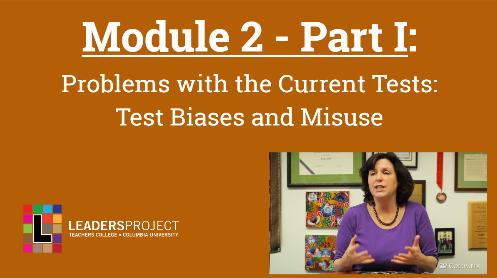In this module, Cate will review city and state regulations, federal law, research-based practice in her discussion of what makes a linguistically and culturally appropriate EI evaluation. She will look more closely at commonly used Early Intervention assessments for areas of bias that may lead to misdiagnosis if used with children of diverse backgrounds and experiences.
This is a module series based on a series of trainings given in March and April of 2016 for the NYC Department of Health and Mental Health Bureau of Early Intervention by Catherine J. Crowley, J.D., Ph.D., a professor of Practice at Teachers College, Columbia University. The purpose of the trainings was to provide information about the NYCDOH Bureau of Early Intervention’s standards for culturally and linguistically appropriate evaluations to EIODs, agency coordinators, and evaluators in New York City.
In Part II of Module 2, Cate will delve into discussing inconsistencies across commonly used tests, as well as reliability and validity issues in many standardized EI assessments.
Find resources here:
The Critical Questions for Early Intervention in English
The Critical Questions for Early Intervention in Spanish
The Critical Questions for Early Intervention in Brazilian Portuguese
Find the playlist and each of the individual modules here:
Early Intervention Evaluations (Playlist)
Module 1- Law, Regulations and Policies
Module 2b- Standardized Test Misuse
Module 4- The Critical Questions
Module 5- Informed Clinical Opinion
Module 6- Bilingual Evaluations
Module 7- Apraxia, Diagnosis and Treatment
Other LEADERSproject module series referred in this video:
Grammar Fundamentals for a Pluralistic Society
http://www.leadersproject.org/2014/09/02/playlist-grammar-fundamentals-for-a-pluralistic-society/
Differential Diagnosis in a Preschool Evaluation
Difference, Disorder, or Gap? A School-Age Disability Evaluation


![[feed link]](/wp-content/plugins/rss-just-better/rss-cube.gif)